Fritextsökning
Artiklar per år
Innehållstyper
-

Optimism på Xspray efter uppgörelse i patenttvist
En uppgörelse uppges ha nåtts i patenttvisten mellan svenska forskningsbolaget Xspray Pharma och läkemedelsjätten Bristol Myers Squibb (BMS) om cancerkandidaten Dasynoc.
-
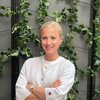
Dynamic Code köper konkursat bolag
Diagnostikföretaget Dynamic Code förvärvar Findout Diagnostics som i juli försattes i konkurs.
-

Small robots to deliver pharmaceuticals to the body
Robots that can operate inside the body and a platform that combines ultrasound with AI. These are a couple of the technologies that have qualified for a list that aims to promote sustainable entrepreneurship.
-

Ny nässprej ska hjälpa mot social ångest
Rädsla och ångest inför att tala för en publik är något av det amerikanska läkemedelsföretaget Vistagen vill råda bot på med sin läkemedelskandidat i nässprejsformat. Nu publicerar företaget positiva fas III data.
-

Rapid developments in AI – “All stakeholders are struggling to understand it”
Artificial intelligence is being discussed more and more, and developments in the field are moving rapidly. As the Swedish Medical Products Agency testifies, keeping up with developments is not easy.
-

”En dag hejdade jag mig – vad är det egentligen jag vill?”
När Tina Persson hade verkat som forskare inom akademin och arbetat i näringslivet, i totalt tjugoåtta år, stannade hon upp, tänkte efter, bytte bana och startade sitt eget utbildnings- och coachföretag.
-

Samuel Lagercrantz: The government’s performance in healthcare and life sciences so far
Since the change of government in Sweden, developments in the healthcare sector have shown promising signs, but the outlook in life sciences is less promising, writes Samuel Lagercrantz in an editorial.
-
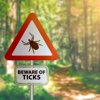
The first Lyme disease vaccine faces a delay
Pfizer and Valneva’s Lyme disease vaccine, which could be the first of its kind, is facing delays of about a year. The reason is problems at trial sites in the United States, which have forced the companies to drop half of the participants in an ongoing Phase III study.
-

Study: Chat GPT is more empathetic than doctors
The AI tool Chat GPT is not only more accurate when it comes to answering patient questions – the chatbot is also perceived as almost 10 times more empathetic than real doctors, a new study reveals.
-

Petter Hartman: Kombinationsbehandling mot faktaresistens
"Kunskapsrelativismen har blivit rumsren i allt större kretsar. Till och med sådant som vetenskapen med stor säkerhet kunnat fastslå som obestridligt, ifrågasätts på lösa grunder" skriver Petter Hartman i en krönika.
-

Chat GPT mer empatisk än läkare enligt studie
Chat GPT har inte bara större precision när det kommer till patientfrågor – chattboten uppfattas dessutom som nästan tio gånger mer empatisk än riktiga läkare, enligt en ny studie.
-

Uncertainty about the government’s life science work
The government’s national coordinator for life science, Jenni Nordborg, left her position almost four months ago. No one has yet succeeded her, and now questions are being raised both about the government’s plans for the office and the Swedish life science strategy.
-
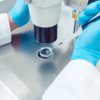
Major advances in IVF labs in the last few decades
Since the introduction of in vitro fertilisation several decades ago, many developments have been made in the field, and the main part of that development has taken place in the lab.
-
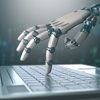
Bör vi vara oroliga att AI tar över våra jobb?
Ingen kan ha undgått att det pratas om AI, artificiell intelligens, överallt. Men bör vi vara oroliga för våra jobb när AI gör entré?
-

Bananflugor äter för njutningens skull
Har du också irriterat dig på de små ljusbruna flugorna i köket? Nu är det klarlagt – de roar sig och har kul där i fruktskålen.
-

“An entire industry is about to be wiped out”
According to Jennie Ekbeck, CEO of Umeå Biotech Incubators, Sweden risks not having any small diagnostic companies left in five years.
-

Column: ”Life as a F1 race”
"The F1 car makes several pit stops during a race and during a lifetime the human being may also have to come in several times for maintenance", Björn Ursing writes in a column.
-

Business Sweden i möte med branschen om satsningar på bortglömd jättemarknad
-

Individual DNA passport could result in fewer drug side effects
You may be required to show a DNA passport when you pick up medicines at the pharmacy in the future. According to a new study, patients might suffer 30% fewer side effects if the drug treatment is adapted to their genes.
-

ALS – When the body has given up, but the brain persists
The nerve disease ALS gradually deprives the patient of control over the muscles and, eventually, also of speech. The eyes continue to function, though, and with the help of, among other things, a Swedish-developed invention, communication with the outside world can continue. “It’s their window to the world,” says ALS researcher Caroline Ingre.
-

Medivir i möte med FDA: "Positiv återkoppling"
Forskningsbolaget Medivir har genomfört ett så kallat pre-IND-möte med den amerikanska läkemedelsmyndigheten FDA.
-

“Photon counting in computed tomography is the holy grail”
Erik Fredenberg, a researcher in physics at KTH and GE, is working to implement photon-counting CT in clinics. To shorten lead times and reduce the radiation dose in patients, he is setting out to develop a framework for virtual clinical trials for the technology.
-
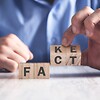
Fritt fram för desinformation om covid-19 på Twitter
Yttrandefrihet ska råda på Twitter, enligt nya ägaren Elon Musk, och nu har regler för att förhindra spridning av desinformation om covid-19 tagits bort.
-
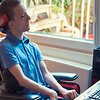
ALS – När kroppen har gett upp men hjärnan finns kvar
Nervsjukdomen ALS berövar patienten gradvis kontrollen över musklerna, och till sist även talet. Men ögonen fortsätter att fungera, och med hjälp av bland annat en svenskutvecklad uppfinning kan kommunikationen med omvärlden fortsätta. "Det är deras fönster mot världen", säger ALS-forskaren Caroline Ingre.